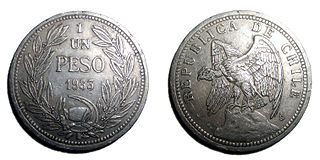This article needs additional citations for verification .(April 2018) (Learn how and when to remove this template message) |
The Minerals and Mining Law of 1986 (PNDCL 153), as amended by the Minerals and Mining (Amendment) Act of 1994 (Act 475) and the minerals and mining bill of 2005 (law No. 703), regulates mining in Ghana. Under the Minerals and Mining Law, mining companies must pay royalties; companies may also pay corporate taxes at standard rates. Companies are exempt from custom duties on accessories, equipment, machinery, and plants used for mining operations, but must pay local property taxes on their immovable properties. The 1986 mining law had been instrumental in attracting more than $5 billion in foreign investment to the Ghanaian mining industry between 1986 and 2002. The 1994 amendments reduced the 45% general mining corporate tax rate to 35%, which is the same as that imposed on other industries.

Mining is the extraction of valuable minerals or other geological materials from the earth, usually from an ore body, lode, vein, seam, reef or placer deposit. These deposits form a mineralized package that is of economic interest to the miner.

Ghana, officially the Republic of Ghana, is a country located along the Gulf of Guinea and Atlantic Ocean, in the subregion of West Africa. Spanning a land mass of 238,535 km2 (92,099 sq mi), Ghana is bordered by the Ivory Coast in the west, Burkina Faso in the north, Togo in the east and the Gulf of Guinea and Atlantic Ocean in the south. Ghana means "Warrior King" in the Soninke language.
A royalty is a payment made by one party, the licensee or franchisee to another that owns a particular asset, the licensor or franchisor for the right to ongoing use of that asset. Royalties are typically agreed upon as a percentage of gross or net revenues derived from the use of an asset or a fixed price per unit sold of an item of such, but there are also other modes and metrics of compensation. A royalty interest is the right to collect a stream of future royalty payments.
On December 15, 2005, the Ghanaian Parliament passed into law a new minerals and mining bill. Some of the provisions under the new Minerals and Mining Law, law No. 703, included access to mineral rights on a first-come, first-considered basis; a specific timeframe within which all applications are expected to be granted; the right for applicants to demand written reasons from the Minister if an application is rejected; the Government’s right to acquire land or authorize its occupation and use if the land is required for mining purposes; the establishment of a cadastral system for the administration of mineral rights; a provision establishing the range of royalty rates, which is not to be less than 3% or exceed 6% of total mining revenues; the Government’s right to obtain a 10% free-carried interest in mining leases; and the establishment of the period of duration of a mining lease, which is not to exceed 30 years and which may be renewed once for a period not to exceed an additional 30 years.

The Parliament of Ghana is the legislative body of the Government of Ghana.

The Government of Ghana was created as a parliamentary democracy, followed by alternating military and civilian governments. In January 1993, military government gave way to the Fourth Republic after presidential and parliamentary elections in late 1992. The 1992 constitution divides powers among a president, parliament, cabinet, council of state, and an independent judiciary. The government is elected by universal suffrage.
A cadastre is a comprehensive land recording of the real estate or real property's metes-and-bounds of a country.







